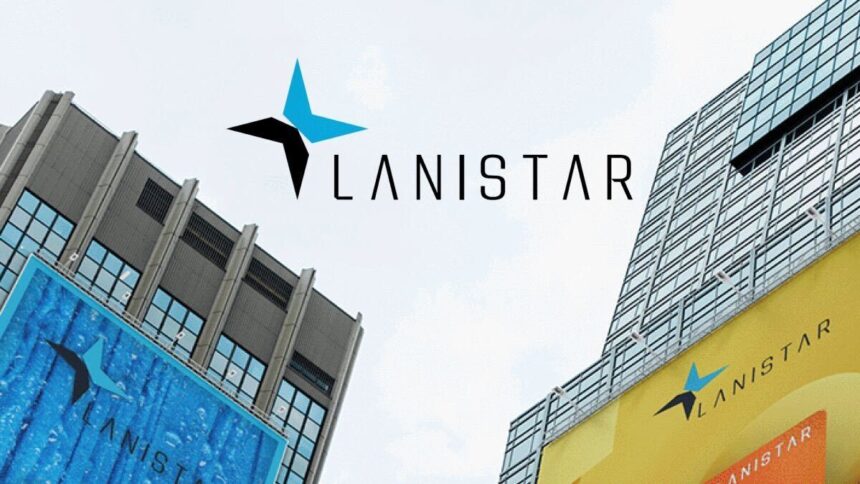Introduction
In the rapidly evolving world of fintech, few startups have garnered as much attention and controversy as Lanistar. Founded in 2019 by entrepreneur Gurhan Kiziloz, Lanistar set out to disrupt the digital banking landscape, positioning itself alongside industry giants like Monzo and Revolut. However, beneath its ambitious facade lies a series of troubling events that have raised numerous red flags for consumers and investors alike. This investigative article delves into the myriad issues surrounding Lanistar, from regulatory warnings and financial disputes to internal allegations and marketing controversies.
The Rise of Lanistar
Lanistar burst onto the fintech scene with bold promises of revolutionizing the payment industry. Central to its vision was the introduction of the “polymorphic payment card,” touted as the world’s most secure payment solution. This innovative card aimed to consolidate multiple bank cards into one, offering users unparalleled convenience and security. The company’s aggressive marketing campaigns, featuring high-profile influencers and celebrities, further amplified its presence in the market.

Regulatory Warnings: A Troubling Start
Despite its initial hype, Lanistar’s journey has been fraught with regulatory challenges. In November 2020, the UK’s Financial Conduct Authority (FCA) issued a consumer warning against Lanistar, stating that the company was providing financial services without proper authorization. The FCA cautioned consumers to be wary of dealing with unauthorized firms, highlighting potential risks associated with such entities. Following discussions and amendments to its marketing materials, Lanistar added disclaimers clarifying its regulatory status, leading the FCA to withdraw the warning shortly thereafter.
Financial Disputes: Winding Up Petitions and Debt Settlements
Lanistar’s financial stability has been a subject of concern, marked by multiple winding up petitions. In September 2024, the company’s London landlord filed a petition over unpaid rent and service charges. Although Lanistar settled this debt before a court hearing in October 2024, the incident raised questions about its fiscal health. More recently, in February 2025, Accomplish Financial Limited, a payments solution provider associated with Lanistar, filed another winding-up petition. Such petitions are typically initiated by creditors seeking to liquidate a debtor company due to unpaid debts. This recurrence of financial disputes underscores ongoing concerns about Lanistar’s fiscal health.
Internal Allegations: A Toxic Workplace Culture?
Beyond external challenges, Lanistar has faced internal turmoil. Former employees have accused the company of fostering a toxic workplace culture, with allegations ranging from bullying and sexism to the establishment of a “loser’s table” for staff who failed to meet targets. Seven ex-employees described experiences of sexual harassment and bullying, painting a troubling picture of the company’s internal environment. These allegations not only tarnish Lanistar’s reputation but also raise concerns about its leadership and corporate governance.
Marketing Controversies: Misleading Promotions
Lanistar’s aggressive marketing strategies have also come under scrutiny. The company launched high-profile campaigns featuring celebrities and influencers to promote its payment card as the “world’s most secure.” However, the Advertising Standards Authority (ASA) received complaints about these campaigns, leading to investigations into potential misleading advertising practices. Critics argue that Lanistar’s promotional content exaggerated the capabilities of its products and services, potentially misleading consumers.
Founder Under the Spotlight: Gurhan Kiziloz
Central to Lanistar’s narrative is its founder, Gurhan Kiziloz. At 35, Kiziloz has built a substantial fortune, with his net worth approaching $700 million. His entrepreneurial journey began in fintech, an industry known for tight regulations and high barriers to entry.
Diagnosed with severe ADHD, Kiziloz’s relentless drive and ability to spot opportunities have been both his strength and, perhaps, his Achilles’ heel. While his ambition is undeniable, the controversies surrounding Lanistar raise questions about his leadership and business ethics.
Associated Ventures: Nexus International and the Gambling Empire
Beyond Lanistar, Kiziloz has been linked to other ventures, notably Nexus International, a significant player in the gaming industry. By the end of 2024, Nexus International’s revenue totaled $400 million, with expectations of dramatic growth in the coming years. Kiziloz’s strategic pivot into the gaming sector, coupled with Lanistar’s transformation into a gaming- focused fintech company, has allowed Nexus International to control both the gaming and payment processing aspects of the industry. While this integration offers operational advantages, it also raises concerns about potential conflicts of interest and regulatory compliance.

Consumer Complaints: A Pattern of Dissatisfaction
Lanistar’s challenges extend to its customer base. Numerous consumers have reported issues ranging from delayed transactions and unresponsive customer service to unexpected fees.
Online forums and review platforms are rife with negative feedback, suggesting systemic problems within the company’s operations. These complaints not only deter potential customers but also attract regulatory attention, further complicating Lanistar’s efforts to stabilize its position in the market.
AML Red Flags : Potential Compliance Issues
Anti Money Laundering (AML) compliance is a critical aspect of any financial institution’s operations. Companies or entities that are on sanctions lists raise red flags because they show signs of potential involvement in money laundering and other unlawful activities. As a
fintech company, Lanistar is expected to adhere to stringent AML regulations. However, given its regulatory history and internal challenges, questions arise about the effectiveness of its AML protocols. Failure to comply with AML regulations can lead to severe penalties and further damage to the company’s reputation.
Financial Struggles and Winding Up Petitions
One of the most alarming red flags surrounding Lanistar is its financial instability. The company has faced multiple winding up petitions, which are legal actions taken by creditors when a business fails to pay its debts.
- In September 2024, Lanistar’s London landlord filed a winding up petition over unpaid rent and service charges. Although the company settled the debt before the court hearing, the incident raised concerns about its financial health.
- In February 2025, Accomplish Financial Limited, a key payments solution provider for Lanistar, also filed a winding-up petition. This repeated pattern of failing to pay creditors suggests serious financial mismanagement within the company.
Misleading Marketing Strategies & Celebrity Endorsements
Lanistar’s marketing tactics have been another source of controversy. The company invested heavily in celebrity endorsements and influencer partnerships, presenting its payment card as the “world’s most secure”. However, several aspects of these campaigns have been highly misleading:
- Exaggerated Claims: Lanistar marketed its product as a revolutionary fintech innovation, but in reality, it did not hold a banking license and merely acted as an intermediary.
- Lack of Transparency: Consumers were not clearly informed about the actual functionality of the card or the company’s regulatory limitations.
- Influencer-Driven Deception: Lanistar paid social media influencers to promote its services without properly disclosing the risks or regulatory status of the company.
Gurhan Kiziloz: The Man Behind the Scandal
At the heart of Lanistar’s controversies is its founder Gurhan Kiziloz. While Kiziloz has presented himself as a visionary fintech entrepreneur, his track record raises serious doubts about his business ethics.
- Involvement in Nexus International: Kiziloz has also been linked to Nexus International, a major player in the gambling and online gaming industry. His dual interests in both fintech and gambling raise concerns about potential conflicts of interest and financial manipulation.
- Shifting Business Focus: Originally a fintech startup, Lanistar has suspiciously shifted its focus to the gaming sector, further blurring the lines of its operations.
Consumer Complaints: A Pattern of Fraud?
- Blocked Transactions: Customers have complained that their money was held or delayed without explanation.
- Hidden Fees: Users have reported being charged unexpected fees that were not properly disclosed.
- Poor Customer Support: Many complaints mention unresponsive or unhelpful support teams, making issue resolution difficult.

Conclusion:
Lanistar’s journey has been plagued by regulatory warnings, financial instability, and internal scandals, raising serious doubts about its credibility. The winding-up petitions, misleading marketing tactics, and toxic workplace allegations further expose the company’s shaky foundation. Under the questionable leadership of Gurhan Kiziloz,
Lanistar appears to be more about hype than genuine financial innovation. With mounting consumer complaints and unresolved legal troubles, the risks far outweigh any potential benefits. Investors and consumers should exercise extreme caution, as Lanistar increasingly looks like a financial disaster in the making rather than the fintech revolution it claims to be







